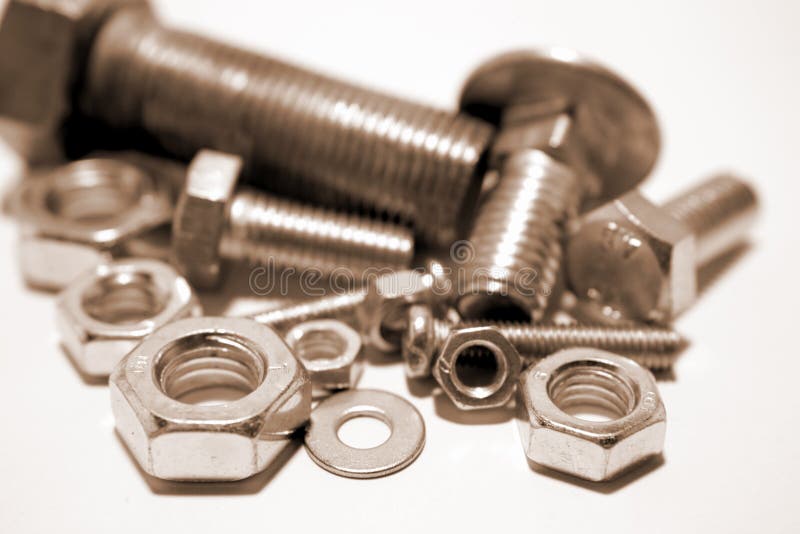In the realm of building, vehicle repairs, and home improvement projects, the value of picking the right nuts and bolts is crucial. These seemingly simple components play a crucial role in providing the integrity and protection of your projects, whether you are constructing a deck, repairing a vehicle, or tackling a DIY home renovation. Nonetheless, with a vast array of choices available, knowing what to consider when buying fasteners is crucial for achieving the desired results.
This comprehensive guide aims to provide you with a thorough overview of various kinds of hardware, along with suggestions on how to choose the right fastening solution for your specific needs. From the most common types of bolts to the different materials and finishes available, we will discuss the considerations that contribute to your decision of nuts and bolts. Whether you are a professional contractor or a novice, arming yourself with this insight will enable you to make reasonable decisions and promote the effectiveness of your projects.

Comprehending Fasteners
Nuts and bolts are crucial hardware that bind materials together, constituting the backbone of numerous building and repair projects. They come in different forms, dimensions, and substances, each designed to meet specific needs. The basic principle behind nuts and bolts lies in their power to create a secure connection by using the grooved shaft of a bolt, which is coupled with a matching nut that can be tightened or released as necessary.
Different types of nuts and bolts serve specific purposes. For instance, hexagonal bolts are often used in robust applications due to their durability, while smooth bolts are best for projects requiring a finished finish. In contrast, lag bolts are frequently chosen for fastening wood, notably in building. Understanding these differences is crucial for determining the appropriate fastener for a project, providing security and durability in the final construction.
Furthermore, substances and coatings play a crucial role in the efficiency of nuts and bolts. Steel is the most commonly used material, but choices like brass and titanium are available for unique applications. Corrosion-resistant finishes, such as coated coatings, can extend the lifespan of fasteners in exterior or wet environments. By understanding the types and features of nuts and bolts, customers can make informed choices to improve the standard and longevity of their projects.
Materials and Finishes
When choosing nuts and bolts, the materials they are made from play a crucial role in determining their performance and durability. Metal is the most widely used material due to its strength and versatility. However, there are different types of steel, including carbon steel and alloy-based steel, each suited for particular applications. For environments that require resistance to rust and corrosion, corrosion-resistant steel is an outstanding option, offering durability and longevity even in harsh conditions.
Finishes are also crucial as they can enhance the performance of nuts and bolts. Zinc plating is a popular choice as it provides a layer of protection against corrosion while keeping a clean appearance. Galvanizing, a more robust coating, involves immersing steel parts in liquid zinc, offering greater resistance to the elements. For specialized uses, such as in marine environments, a coating that can withstand saltwater corrosion is essential, making materials like brass or coatings specifically designed for oceanic use important considerations.
Understanding the variations in substances and their coatings can help you select the right fasteners for your project. For instance, while titanium fasteners are lightweight and corrosion-resistant, they can be significantly more expensive than their steel counterparts. Choosing the right substance and coating not only ensures the integrity of the assembly but also enhances the cost-effectiveness and longevity of your project.
Purchasing Tips and Comparisons
When buying fasteners, understanding the various kinds and their uses is essential. Start by determining whether you need metric system or imperial system fasteners. Both measuring systems are widely used, but selecting the correct one is key for matching with your projects. Additionally, learn with specific bolt grades and specifications, as these affect the strength and appropriateness for various applications, from large-scale building to everyday tasks.
Next, consider the materials and finishes of the fasteners. Stainless steel bolts are often perfect for outdoor use due to their corrosion resistance, while zinc-plated options may be appropriate for indoor projects. If your application requires a specialized coating for additional strength and longevity, explore options like galvanization or specialty coatings. Assess the environmental conditions the fasteners will face, as this can greatly influence their efficiency and lifespan.
Lastly, keep a checklist handy while purchasing nuts and bolts. Measure more tips here , review compatibility with additional parts in your task, and ensure that the nuts fit tight to the bolts. A wide selection of options might lead to confusion, but sticking to your project requirements and knowing the differences in types of threads, lock nuts, and specialty fasteners will help you make informed choices at all times.
